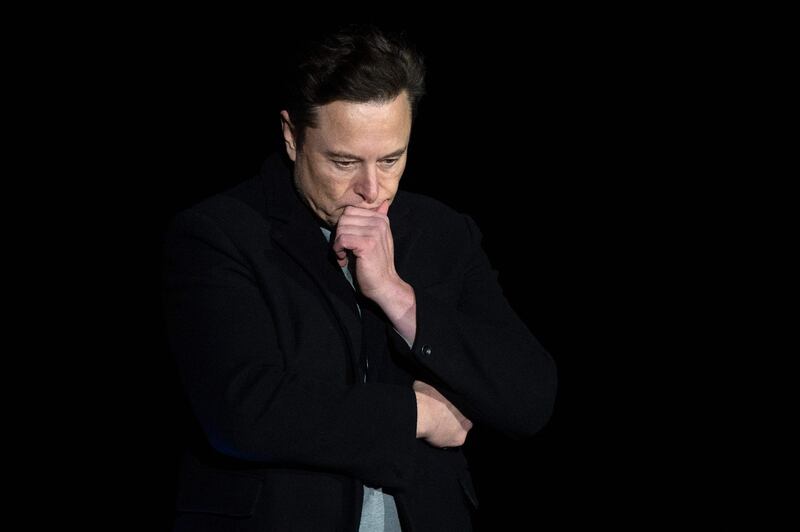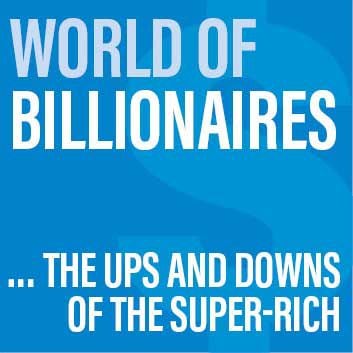Elon Musk
By all accounts — including Elon Musk’s — Twitter has more than enough money to make its first interest payments, expected to total about $300 million.
But with the payment date fast approaching, there’s nevertheless some anxiety over what the impulsive billionaire might do to ease the social media company’s $12.5 billion debt burden.
Yes, Mr Musk, the world's second-wealthiest person, said in a late December conversation on Twitter Spaces that the company has about $1 billion in cash on its balance sheet.
But he’s also openly floated the idea of bankruptcy, cited a “massive drop” in revenue as some advertisers fled from the platform and slashed staff since closing his $44 billion leveraged buyout of Twitter in October last year.
Watch: Elon Musk takes over Twitter — what's next?
Elon Musk takes over Twitter: what's next?
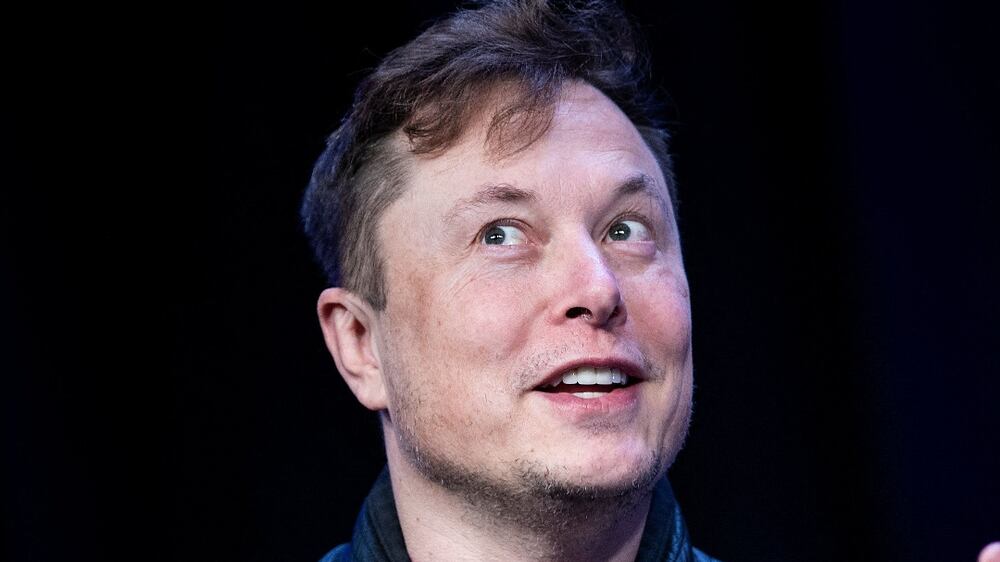
A group of seven banks, led by Morgan Stanley, own the debt. The drama around Mr Musk’s acquisition and volatile markets left them saddled with the loans, which they normally would have offloaded to investors.
Now, after they lost some $4 billion on paper for backing Mr Musk’s Twitter bid, market onlookers see little reason for the banks to go along with any unexpected manoeuvres near the interest payment deadline, expected on January 27.
After all, in most bankruptcies, the equity is wiped out — and lenders eventually take control.
“There’s too much at stake for Mr Musk and his co-investors,” said Jordan Chalfin, a senior analyst at credit research firm CreditSights.
“Twitter will make its near-term interest payments, come hell or high water, and give the business time to turn around.”
Representatives for Morgan Stanley and Mr Musk did not respond to requests for comment.
While anything is possible with Mr Musk, 51, he doesn’t have many reasons to skip the first interest payment.
The longer term is a bigger question: in the Twitter Spaces conversation, he said the company was on pace to lose $3 billion in 2023.
“That is why I spent the last five weeks cutting costs like crazy,” he said.
But in the near term, if Twitter didn’t pay its interest, that could trigger a default, which would allow the banks to force the company into Chapter 11 bankruptcy.
Some debt allows for a 30-day grace period, but it’s unclear if that exists for the Twitter loans.
Regardless, the consequences for Mr Musk, who owns an estimated 79 per cent of the company, would be immediate and severe.
While Twitter is on the hook for the debt, and not Mr Musk personally, he put up more than $20 billion for his stake in the company.
That’s now worth an estimated $11.6 billion, a sizeable part of his $136 billion fortune, according to the Bloomberg Billionaires Index.
“If you’re a lender to Twitter and Elon Musk is threatening to not pay the coupon, you go to the standard playbook, which is: ‘OK, I’ll see you in bankruptcy’,” says Philip Brendel, a distressed debt analyst at Bloomberg Intelligence.
“In terms of who’s got more to lose, it’s certainly Elon Musk,” Mr Brendel says. “Whether he cares if he loses that or not, that’s a whole different question. He certainly behaves differently than what normal people would do in those situations.”
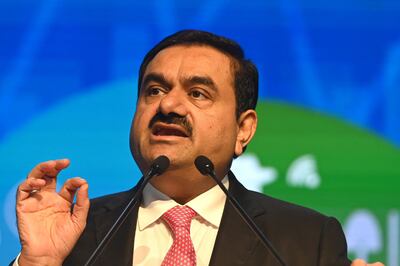
Gautam Adani
Gautam Adani’s flagship is offering investors discounts of 10 to 15 per cent in India’s biggest follow-on share sale as the billionaire tries to woo a wider set of backers.
Adani Enterprises is seeking to raise 200 billion Indian rupees ($2.5 billion) by selling shares in a price band of 3,112 rupees to 3,276 rupees a piece, according to an exchange filing on Wednesday.
Large investors would get a concession of 10 per cent on the current market price while retail investors would pay even less to buy into a company that has almost doubled in market value over the past year.
Roughly half the money will go towards expanding Mr Adani’s airport and renewable energy projects, while some 42 billion rupees — a little less than a quarter of the amount raised — will be used to pare debt, the company said in its prospectus.
Anchor investors can bid on January 25 and the rest from January 27 to 31.
In a rare move for a follow-on sale, Mr Adani, the world's third-richest person with a net worth of $123 billion, will allow investors to pay for their purchases in tranches.
Bidders will have to pay 50 per cent of the offer price as upfront payment, followed by one or two instalments of the remaining sum. Retail investors would get a discount of 64 rupees per share.
The massive share sale would help Mr Adani meet multiple goals.
Broadening his investor base would fend off allegations that his empire comprises mainly thinly traded stocks; repaying debt addresses concerns about overleverage; and winning over “mom-and-pop” investors would cement Mr Adani’s legacy as a wealth creator in a nation with widening income inequality.
“We have done strategic capital. The next capital is patient capital,” Jugeshinder Singh, chief financial officer of Adani Enterprises, said in an interview in November.
“Indian 'mom-and-pop' investors invest for their children and grandchildren.”
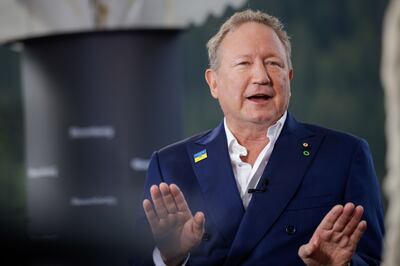
Andrew Forrest
Billionaire Andrew Forrest sees an opportunity to export green fuels to Singapore after the collapse of a A$30 billion ($21 billion) project to supply clean electricity from Australia.
Developer Sun Cable entered voluntary administration earlier this month amid disputes between investors including Mr Forrest and billionaire Atlassian Corporation co-founder Mike Cannon-Brookes over the viability of sending solar power via a 4,200-kilometre cable from Australia’s Northern Territory to the city-state.
Those plans, which had already drawn industry scepticism, are now unviable, with costs spiralling and uncertainty over demand, Mr Forrest said in an interview while attending the World Economic forum in Davos, Switzerland.
Adnoc and Masdar deepen collaboration with BP to develop clean hydrogen — in pictures
Authorities and industries in Singapore are saying “we don’t know why you want to send us all these electrons, when what we’ve asked the world for — and no one’s giving us — is molecules”, Mr Forrest said.
“We want green hydrogen, we want green, synthetic methane, we want green ammonia.”
Singapore is among major global shipping hubs that are responding to decarbonisation with ambitions to boost trade in fossil-fuel alternatives, including biofuels and hydrogen. The nation’s government forecasts hydrogen could meet up to half of its power needs by 2050.
The city-state’s Energy Market Authority declined to comment. Authorities have previously said the nation has had more than 20 proposals for clean electricity supply, including from neighbouring Indonesia and Malaysia, and is on track to meet a target of importing four gigawatts by 2035.

Ryan Cohen
Billionaire meme-stock investor Ryan Cohen has taken a stake in Alibaba Group and is pushing the e-commerce leader to buy back more of its shares, in a rare case of activism aimed at a prominent Chinese company.
Mr Cohen, who rallied individual stock investors to help propel shares of moribund companies like GameStop, built up a stake worth hundreds of millions of dollars in the second half of last year, people familiar with the matter said, asking not to be identified discussing private communications.
The entrepreneur, who became an idol to amateur investors after championing well-known but languishing stocks such as Bed Bath & Beyond, contacted Alibaba’s board in August to make the case its shares were undervalued, the people said, confirming a report in The Wall Street Journal.
That’s based on a view it can achieve double-digit sales growth and almost 20 per cent growth in free cash flow over the next five years.
Such a performance would require a return to the scorching growth rates that China’s largest e-commerce company once routinely delivered before Beijing’s clampdown on technology giants.
The company, co-founded by billionaire Jack Ma, posted a surprise loss in its latest quarter, as revenue again barely grew.
It’s also far from certain whether Mr Cohen’s small stake relative to Alibaba’s $300 billion market value would carry any weight with a company that has adopted the government's “common prosperity” initiatives such as philanthropy.
More broadly, Mr Cohen is getting in at a potential inflection point for the world’s second-biggest economy.
From Goldman Sachs to Morgan Stanley, a growing number of strategists have made bullish calls following Chinese President Xi Jinping’s Covid-zero exit and vows to end the clampdown on the tech sector.
“Cohen’s entry can be broadly positive for Alibaba’s stock and, given his wide following, it should lift sentiment for Chinese tech generally,” says Jin Rui Oh, director at Mariana UFP in Singapore.
Mr Cohen helped to build Chewy.com into a pet supply behemoth that was sold for $3 billion, and then chaired a board committee tasked with transforming video-game retailer GameStop.
